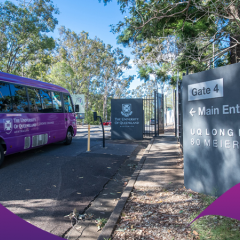Life in far west Queensland provides a very different context around engaging with human services than in urban regions—scarcity of services and challenges inherent in living in more isolated areas can compound usual barriers to service access and integration, particularly for those experiencing problems with mental health or substance use. With funding from the Queensland Mental Health Commission, ISSR has investigated how to improve the ability of people with a lived experience of mental health difficulties in far western Queensland to take up referrals to the services they need.
ISSR researchers engaged directly with service users’ lived experience, travelling to ten regional towns to speak with people experiencing mental health difficulties, mental illness or problematic substance use about their experiences of engaging with – and trying to engage with – human services in the west. Respondents provided diverse insights into their experience of service integration: hailing from larger regional centres as well as smaller, isolated towns, their ages ranged from 19 to 72 years, and significant proportions identified as Aboriginal or LGBTIQ.
Drawing together findings from the qualitative interviews with a systematic review of the literature and analysis of the policy landscape, the ISSR team identified a range of factors that contribute to consumers’ ability to take up referrals and participate in integrated care. While barriers and facilitators such as physical infrastructure, information sharing and cultural appropriateness are common across the service provision landscape, this project provided unique insight to the shape that these take in western Queensland.
Based on the findings, ISSR provided three core recommendations for human service provision in far western Queensland:
- Fully consider consumers’ characteristics and circumstances in choosing a referral that is appropriate and practicably accessible.
- Engage the consumer as an active participant in his or her care and referral.
- Overtly connect the consumer with the service or practitioner, with follow up to ensure the referral is acted upon and the consumer is appropriately supported.
This information will help the QMHC to provide direction to improving the human service use experience for people with complex needs throughout Queensland.
Click here to access the full report: One person, many stories: Consumer experiences of service integration and referrals in far western Queensland.



